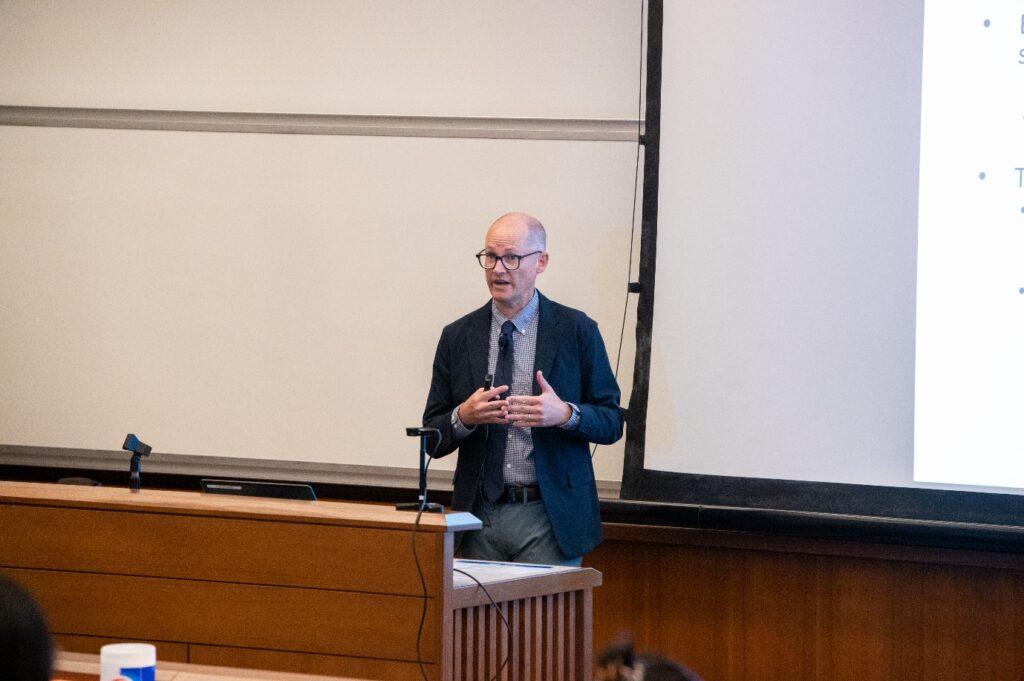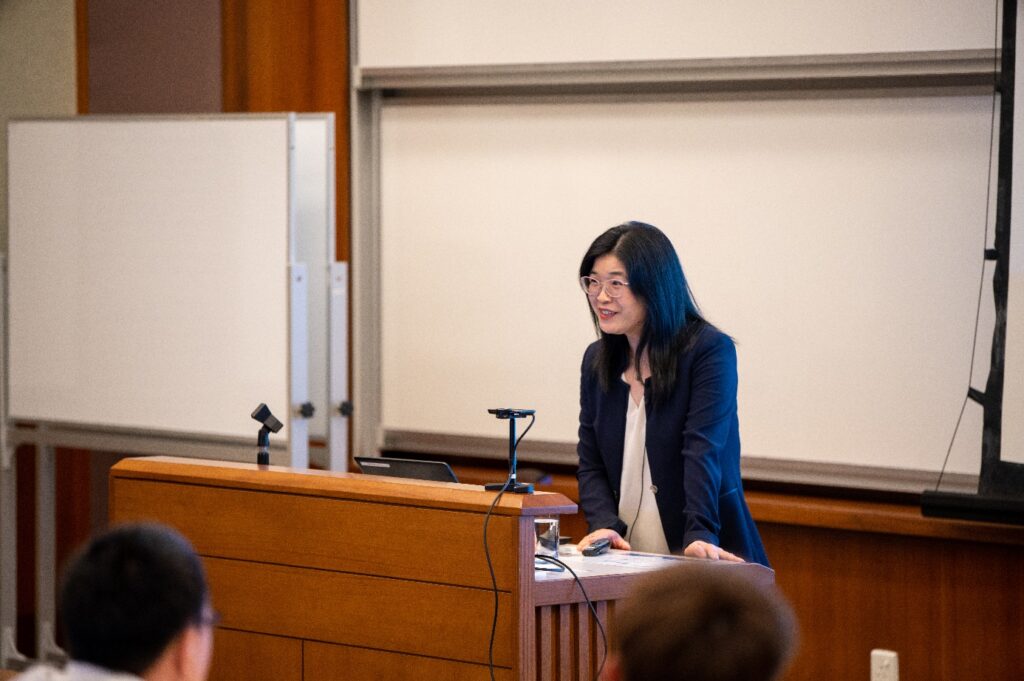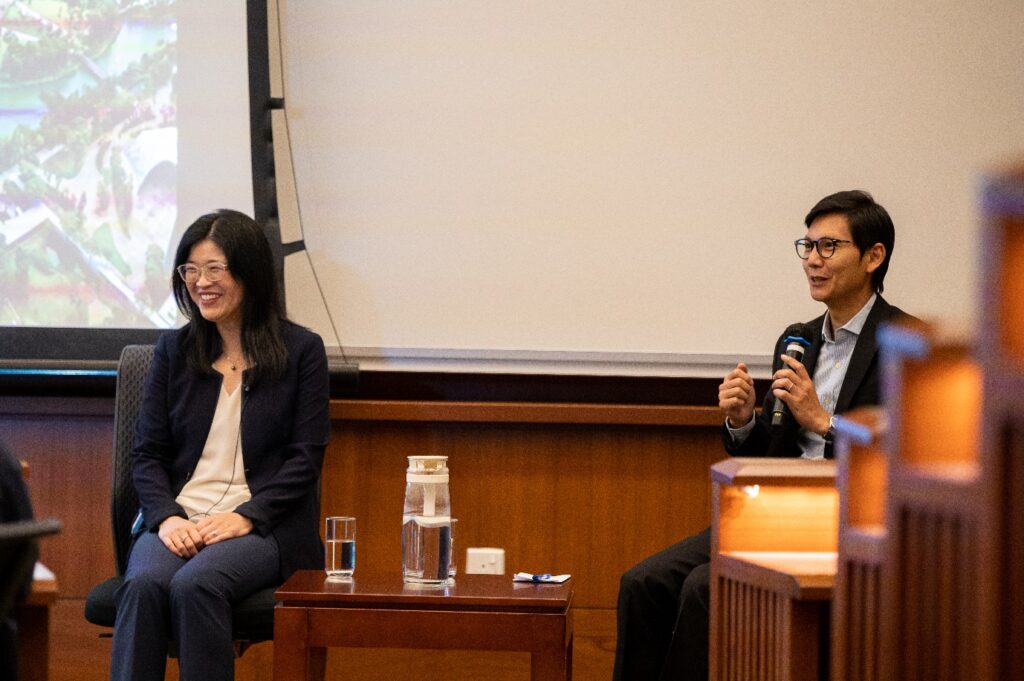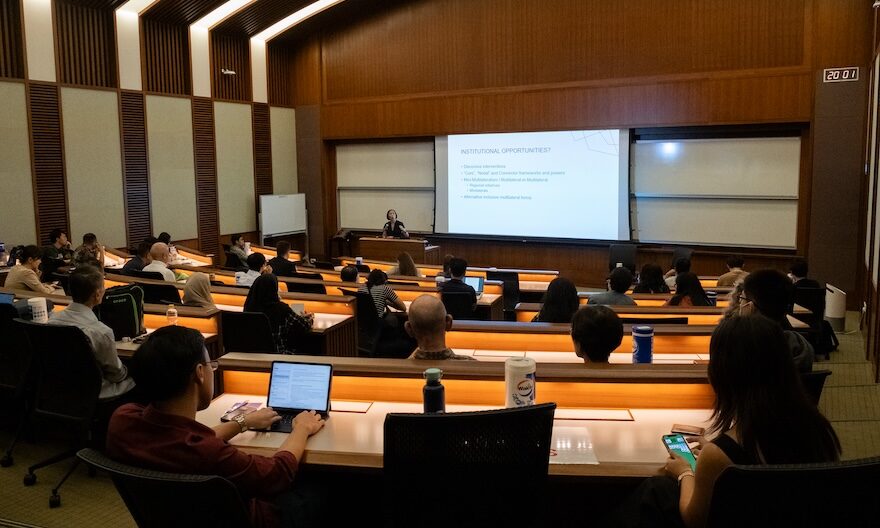Navigating China’s approach to green development and security concerns in the Taiwan Strait
Yale-NUS College’s Geopolitics of Asia lecture series spotlights China’s pertinent role in regional and global politics

The recent Geopolitics of Asia Lecture Series saw scholars from around the world share their research on Asia with a focus on the rise of China and how this has effects on regional and global geopolitics. The lecture series was organised by Yale-NUS College, in partnership with the Lee Kuan Yew School of Public Policy and Yale Jackson School of Global Affairs, and supported by the Tan Chin Tuan Chinese Culture & Civilisation Programme.

On 17 September 2024, Professor Scott Kastner from the Department of Government and Politics at the University of Maryland, College Park, assessed the prospects of war and peace in the Taiwan Strait. Having written extensively on East Asian international relations and Chinese foreign policy, Prof Kastner began by outlining the context behind the rising tensions in the Taiwan Strait, highlighting factors such as leadership dynamics and domestic sentiments in both China and Taiwan. To address this complex issue, Prof Kastner introduced a concise causal model that illustrated scenarios under which China might choose to initiate conflict. He outlined two pathways to conflict. The first is rooted in “efforts by Taiwan to formalise independence or effectively preclude unification as a viable future scenario” such that Taiwan’s status quo crosses China’s redline. The other pathway stems from efforts by China to realise their preferences for unification, and this angle notes the changes in China’s military strength. “I think if we ever reach a point where the PRC believes that it could achieve unification using military force at [an] acceptable cost, then finding a peaceful way out is going to be very difficult. The key to maintaining stability in the Taiwan Strait is to avoid getting to that point in the first place,” explained Prof Kastner.

On 15 October 2024, the College also had the opportunity to learn about China’s Green Belt Road Initiative (GBRI) from Professor Min Ye from the Department of International Relations at Boston University. Her lecture shed light on why and how China promoted GBRI, given that the initiative is both an economic and political puzzle. By economic puzzle, Prof Ye referred to the fact that GBRI does not target the more complementary and profitable Western markets. Meanwhile, she saw a political puzzle whereby many green producers in China, despite being privately owned, profit-driven, and having links to the Western markets, are on board with the GBRI project.
After evaluating explanations and analyses offered by other scholars on the GBRI, she shared her team’s findings. The GBRI has evolved in nature due to COVID-induced shocks and increasing economic sanctions from the West, particularly from the United States. “The GBRI was not a static strategy. It’s actually a product of dynamic state-firm interactions within China, being shaped by changing domestic and international circumstances,” Prof Ye noted. Before COVID-19, Prof Ye explained that the GBRI was more focused on diplomatic outreach and domestic development of BRI nations, helping them establish better supply chains on the green industry. Meanwhile Chinese private firms targeted the more profitable Western market to meet their green needs.
After COVID-19, she observed that the twin shock of the pandemic’s supply chain disruptions, coupled with intensifying trade wars, resulted in a convergence in the GBRI between the Chinese state and private enterprises. The enterprises’ relationship with the Western market became much less secure so BRI countries became a more viable market. The state was also more inclined to help the Chinese firms engage with the BRI countries as an alternative market. “The alignment in their rhetoric and advocacy and their investment aspiration is quite clear,” Prof Ye shared. She concluded the lecture by highlighting the implications that China’s GBRI case provides for Asia, such as the need for Asia to grasp how societies and economics can thrive in sustainable development.

Dylan Lee (Class of 2025) found Prof Ye’s immensely insightful. “Overall, the lecture offered us a way to understand the nature of GBRI – a programme that actively adapts to the changing geopolitical dynamics of our times. It’s certainly a good reminder to be attentive to these developments, and not to be complacent that state behaviours will always remain continuous and unchanging,” he reflected.
The next lecture in the Geopolitics of Asia series will be happening on 8 November 2024, titled ‘The Rise of the Chinese Techno-Security State and the Geo-Strategic and Geo-Economic Implications for the Asia-Pacific Region’ by Professor Tai Ming Cheung from the University of California, San Diego.




